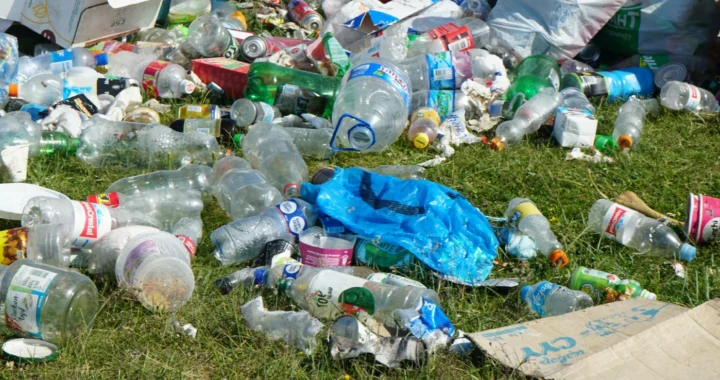How Is the Global Trend on Sustainable Lifestyle?

Photo: Ben White on Unsplash.
Over the centuries, human activities have inflicted damages on Earth. From agricultural practices to fulfill food demand to irresponsible industrial practices and exploitation of natural resources in the name of economic development, many things have seriously impacted the environment. Ultimately, they backfire on humans. In this light, adopting a sustainable lifestyle becomes increasingly necessary as risks get more severe. The Healthy & Sustainable Living 2023 report released by GlobeScan shows a slight improvement in the adoption of sustainable lifestyles in many countries.
Unsustainable Way of Life
Whether we realize it, we might have several habits that can negatively affect our world—the environment, the economy, public health, and survival of other living creatures. Some examples of these lifestyles are:
- Using single-use plastic. Countless plastic we have used ends up in landfills, rivers, or seas. Much of the plastic waste is single-use plastic, leading to river and seawater pollution, marine species loss, marine ecosystem degradation and other negative impacts.
- Throwing away food. From not finishing their food to throwing away excess produce they have bought, people generate food waste daily. At the same time, millions of people still suffer from acute hunger due to a lack of access to food.
- Opting for private vehicles instead of available public transportation. Nowadays, people generally have high mobility, especially those living in urban areas. Unfortunately, many prefer private vehicles to public transportation because they are more flexible and comfortable. Of course, the uneven distribution of safe and accessible public transportation facilities is the primary cause of this issue. As a result, the high number of vehicles on the road contributes to a significant amount of greenhouse gas emissions every year.
- Using cooling systems. People worldwide use cooling appliances to cope with the Earth’s increasingly hot temperatures. However, the use of cooling systems to ward off heat is paradoxical. While the systems can help prevent death due to extreme heat, they also significantly contribute to greenhouse gas emissions. Beyond emissions, the use of cooling systems also emphasizes the inequality that occurs worldwide, as not everyone can access them.
Sustainable Lifestyle Trends
The Healthy & Sustainable Living 2023 report involves nearly 30,000 respondents in 31 markets in 23 countries. It examines several positive habits and changes that lead to sustainable lifestyles. Compared to 2019, some habits show an increasing trend, such as bringing your own shopping bags (from 63% to 67%), recycling waste (from 53% to 59%), avoiding the use of single-use plastic (from 42% to 46%), and buying organic products (from 37% to 41%).
However, despite the increasing trend, sustainable lifestyles have yet to become mainstream globally for several reasons. One of the main factors is the high cost of adopting the lifestyle. As many as 49% of the respondents stated that a lack of affordability prevents them from living a healthy and sustainable lifestyle. Healthier and more environmentally friendly products, including fresh fruit and fish, are generally sold at higher prices than instant and ultra-processed foods.
Additionally, 60% of respondents said they want to switch to healthier lifestyles, but only 30% can make “major changes.”
“People are not changing their behaviors at the scale that science says is required,” wrote the GlobeScan Team in the report. “Less frequent but more impactful actions like eating plant-based food or buying used items instead of new ones remain marginal.”
Interventions Needed
Based on these data and findings, the GlobeScan Research Team sees that meaningful changes can only be achieved with government intervention and strong commitment from the business sector. A good 72% of respondents said they wanted more information about how companies improve their products for the environment.
“We need to recognize that consumers cannot be expected to drive behavior change as they remain constrained by factors beyond their control, including financial and infrastructure constraints,” wrote the GlobeScan Team. “This means that we need to shift the approach from one where the onus is on consumers to make the right choices to brands taking on more of the burden of enabling consumers to live healthier and more sustainably. Consumers should not have to figure it out on their own but should instead be able to count on brands to be sustainable by default and be able to rely on governments to make the systemic changes needed with the support of business.”
To help mainstream sustainable lifestyles, all stakeholders can follow the framework released by the United Nations Environment Program (UNEP), which covers key aspects such as food, housing, mobility, consumer goods, and leisure.
Ultimately, supporting sustainable lifestyles requires understanding various unique and specific cultures, so there is no universal formula or pattern. It is also crucial to note that a “sustainable lifestyle” does not have to involve “new ways” or anything related to consumption. Traditional practices, ancient technology, and a “simple” lifestyle without leaning too heavily on consumerism can provide essential insights into formulating large-scale solutions. Adopting a sustainable lifestyle is not just about saving the environment but also about supporting a good life without leaving anyone behind.
Editor: Nazalea Kusuma
Translator: Kresentia Madina
The original version of this article is published in Indonesian at Green Network Asia – Indonesia.


 Unveiling Potential Technological Risks amid Global Crises
Unveiling Potential Technological Risks amid Global Crises  Waste-to-Methanol, a Potential Sustainable Solution for Waste and Energy
Waste-to-Methanol, a Potential Sustainable Solution for Waste and Energy  In Peru, Stingless Bees Are Granted Legal Rights
In Peru, Stingless Bees Are Granted Legal Rights  Looking into the Government Regulation on the Protection and Management of Mangrove Ecosystems in Indonesia
Looking into the Government Regulation on the Protection and Management of Mangrove Ecosystems in Indonesia  Integrating Systemic Renewable Energy Innovations for Energy Transition
Integrating Systemic Renewable Energy Innovations for Energy Transition  Nepal’s Five-Year Strategy to Clean Up the Mounting Waste in Mount Everest
Nepal’s Five-Year Strategy to Clean Up the Mounting Waste in Mount Everest